Find Help
More Items From Ergsy search
-
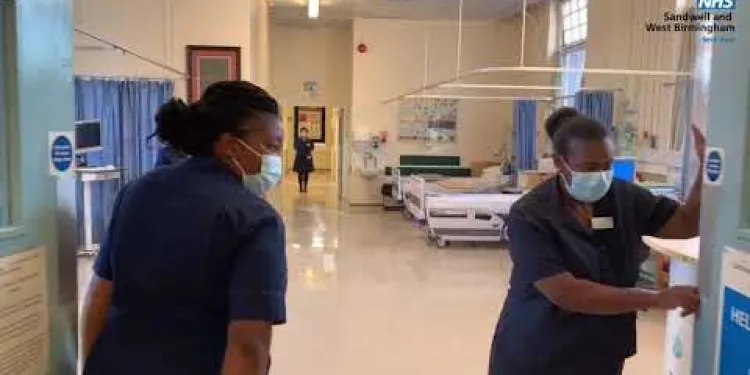
Tour of the Sickle Cell and Thalassaemia Unit at City Hospital | SCaT
Relevance: 100%
-
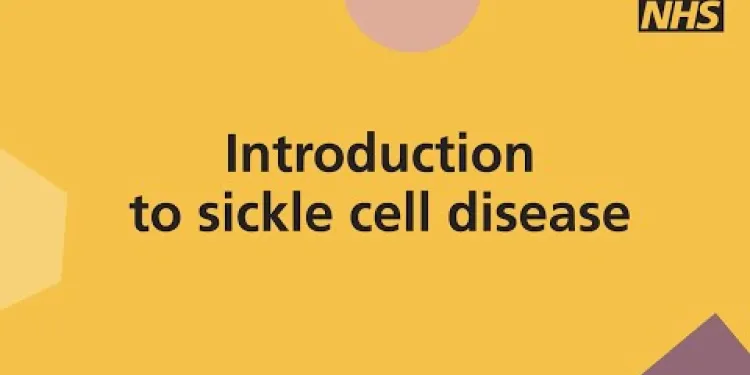
Introduction to Sickle cell disease
Relevance: 43%
-
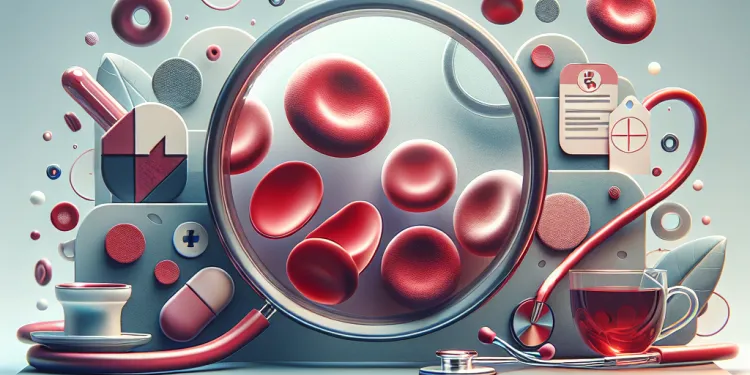
What is sickle cell disease?
Relevance: 40%
-
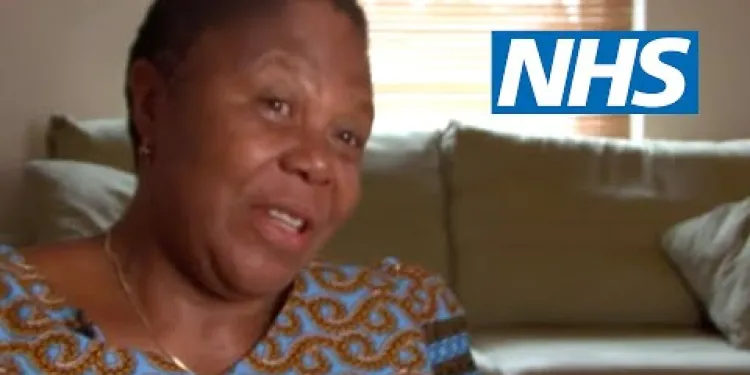
Sickle cell anaemia | NHS
Relevance: 40%
-

What are the complications of sickle cell disease?
Relevance: 39%
-
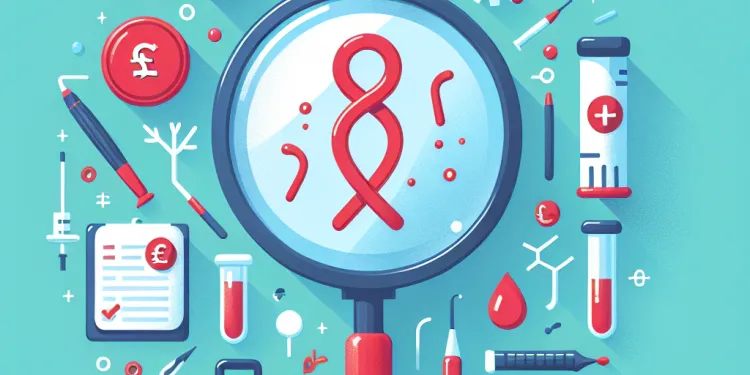
How is sickle cell disease diagnosed?
Relevance: 39%
-

How is sickle cell disease inherited?
Relevance: 38%
-

What are the symptoms of sickle cell disease?
Relevance: 38%
-
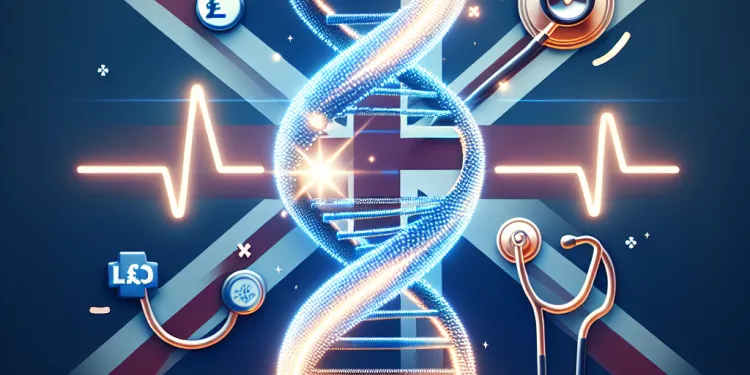
How is sickle cell disease treated?
Relevance: 38%
-
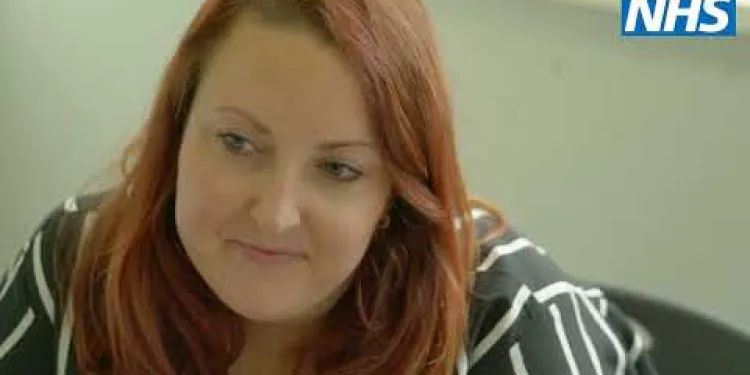
Sickle cell patients share their experiences with the last NHS Chief Executive Amanda Pritchard
Relevance: 31%
-
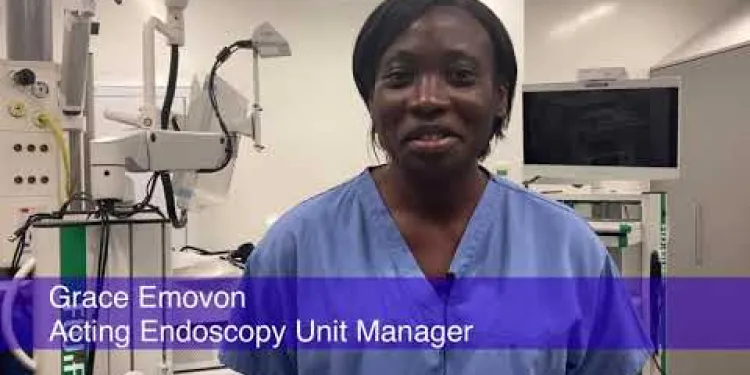
Coming to the Endoscopy Unit at Harrogate District Hospital
Relevance: 23%
-
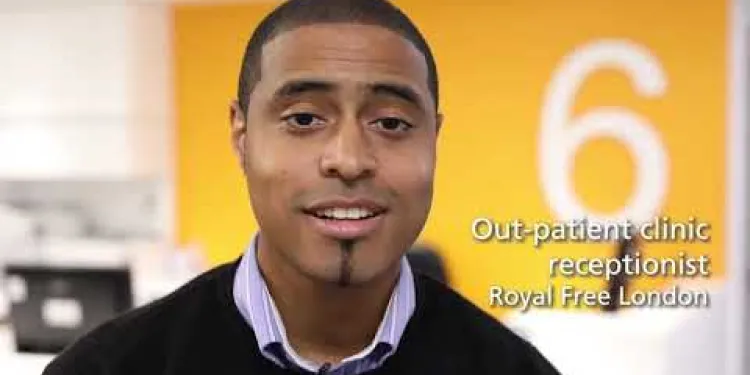
Anaemia One stop shop
Relevance: 21%
-
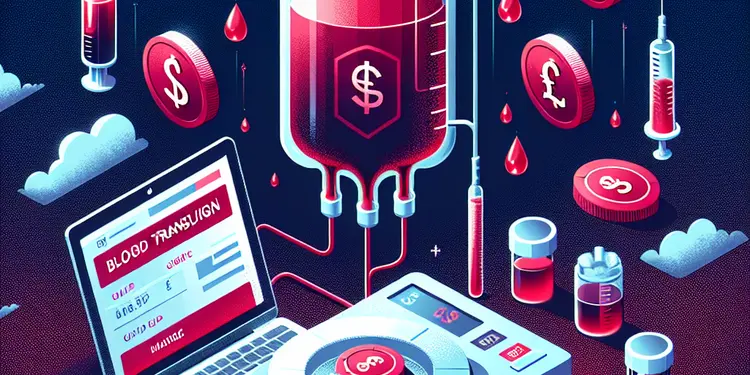
Why might someone need a blood transfusion?
Relevance: 20%
-

What are some common reasons blood transfusions are needed?
Relevance: 18%
-
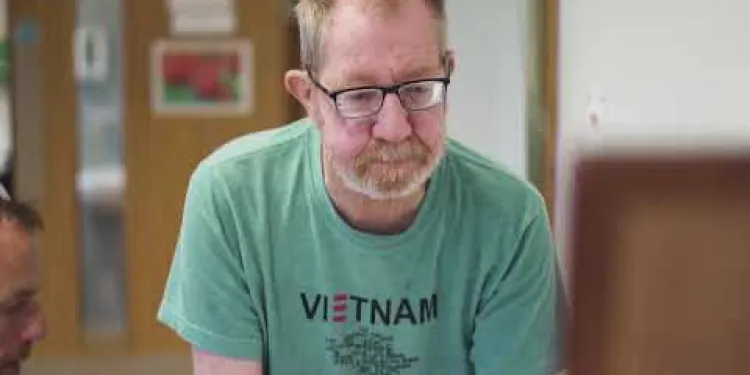
Vale Stroke Unit
Relevance: 18%
-

Will I be in a shared or single cell?
Relevance: 18%
-
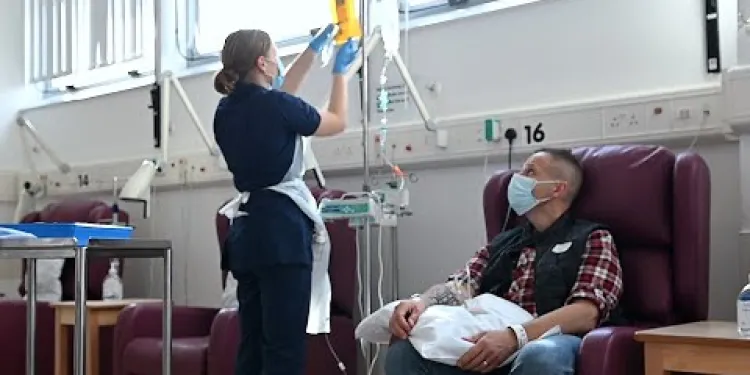
Having chemotherapy and other treatments in the Day Treatment Unit
Relevance: 16%
-

When do I find out about my cell assignment?
Relevance: 16%
-
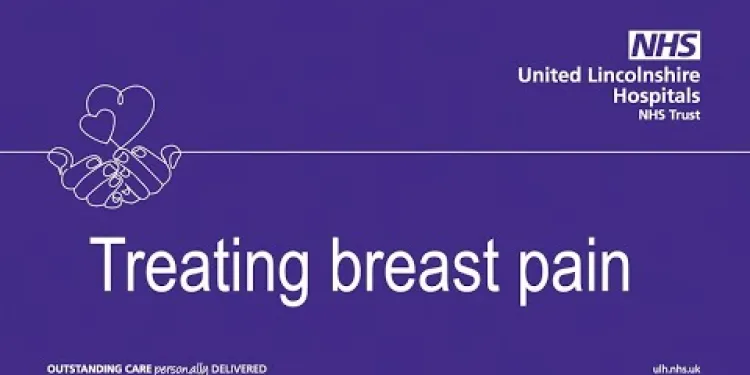
Treating breast pain | United Lincolnshire Hospitals NHS Trust
Relevance: 16%
-

Will language barriers be an issue in EU hospitals?
Relevance: 15%
-
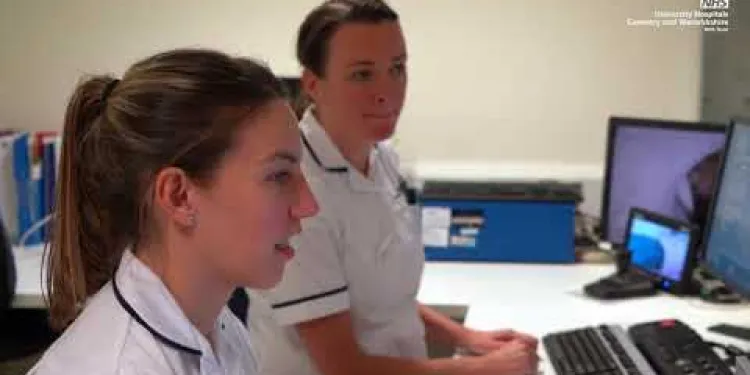
Radiotherapy Services at University Hospital
Relevance: 15%
-

Is ketamine considered a controlled substance in the United States?
Relevance: 14%
-
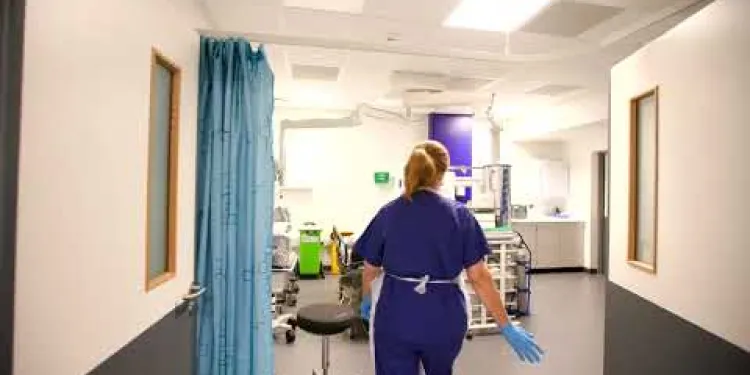
Endoscopy Unit
Relevance: 14%
-

Are there mosquitoes in the United Kingdom?
Relevance: 14%
-
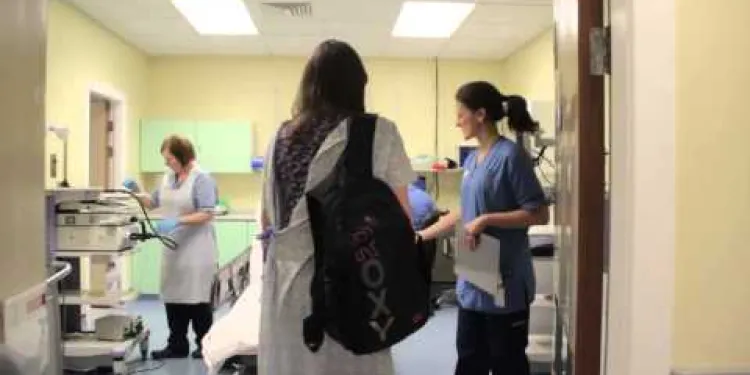
Your Visit to the Endoscopy Unit at NHS Tayside
Relevance: 14%
-

Are there Mosquitos in the United Kingdom?
Relevance: 14%
-

Fallsafe - Put the patient first. Preventing falls in Hospital.
Relevance: 14%
-
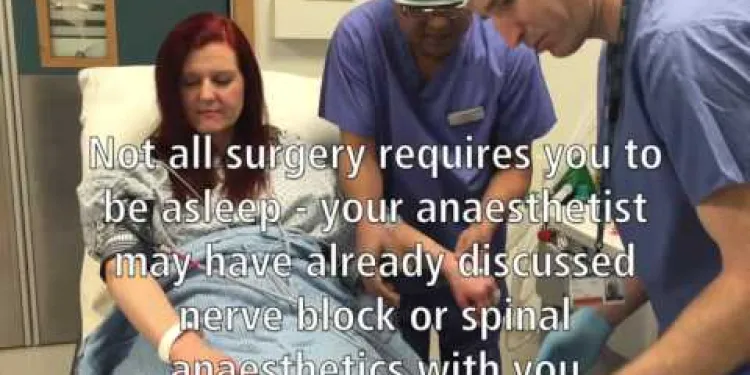
Your Operation at East Surrey Hospital
Relevance: 14%
-

Eye Injections at Royal Bournemouth Hospital
Relevance: 13%
-
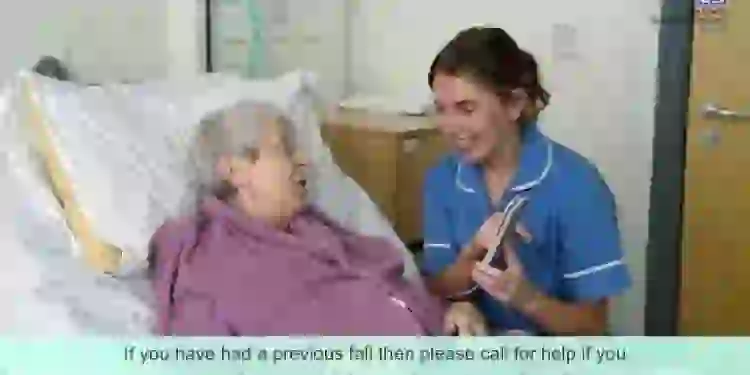
Falls Prevention video for patients attending hospital
Relevance: 13%
-
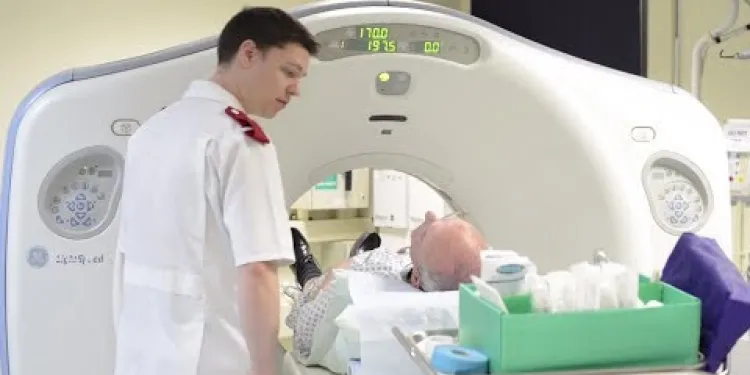
Having a CT scan in Hospital - What's it like having a CT scan at Bedford Hospital?
Relevance: 13%
-

Does the NHS offer an online hospital for menopause?
Relevance: 13%
-
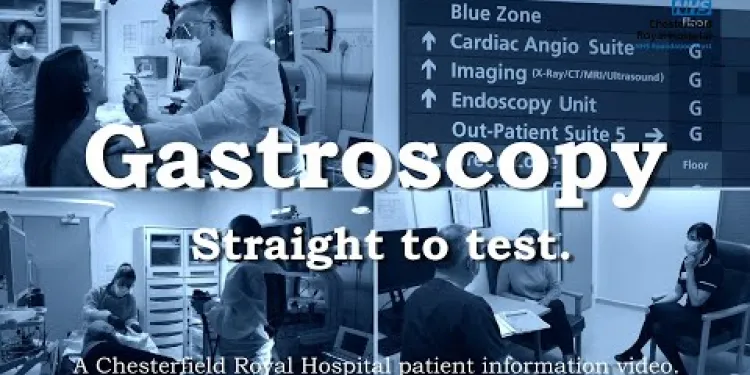
Gastroscopy - What to Expect on Referral to Chesterfield Royal Hospital
Relevance: 13%
-

How do I find a suitable hospital or clinic for my treatment?
Relevance: 13%
-
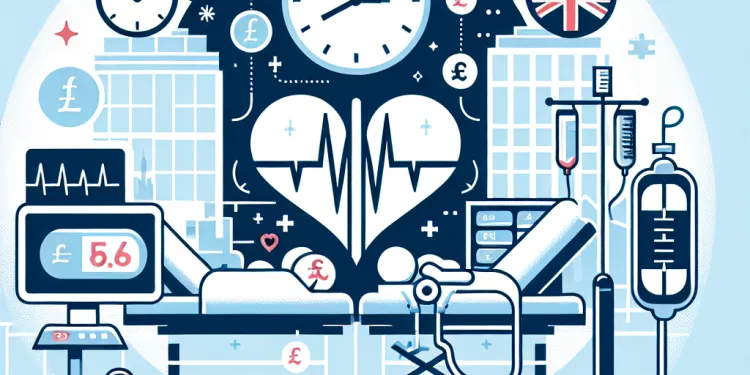
How long will I stay in hospital after a C-section?
Relevance: 13%
-
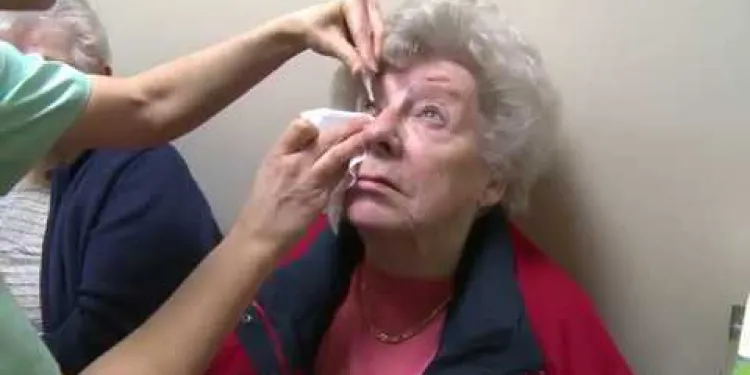
Eye Injections at Royal Bournemouth Hospital
Relevance: 13%
-
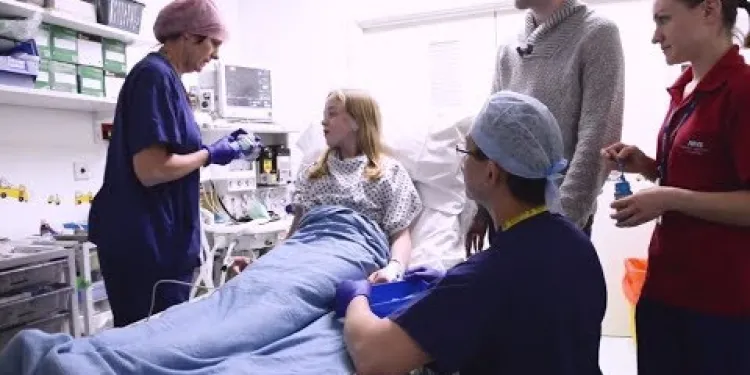
Having an operation in Oxford Children's Hospital with YiPpEe
Relevance: 12%
-

Can I shorten my waiting time by choosing a different hospital?
Relevance: 12%
-

Do private hospitals have shorter waiting times for operations?
Relevance: 12%
-

Are waiting times for operations the same across all hospitals?
Relevance: 12%
Tour of the Sickle Cell and Thalassaemia Unit at City Hospital | SCaT
Introduction to the SCaT Unit
The Sickle Cell and Thalassaemia (SCaT) Unit at City Hospital is dedicated to the care and treatment of individuals with these genetic disorders. Conveniently located and equipped with state-of-the-art facilities, the unit provides comprehensive care to patients, focusing on both medical and holistic needs. The team at SCaT is comprised of specialized healthcare professionals committed to improving the quality of life for those affected by Sickle Cell Disease and Thalassaemia.
Services Offered
The SCaT Unit offers a broad range of services to cater to the varied needs of patients. These services include routine check-ups, blood transfusion services, pain management, and genetic counseling. Additionally, SCaT provides psychological support and educational resources to help patients and their families understand and manage their conditions better. This unit aims to ensure that every patient receives tailored care that meets their specific needs.
Specialized Medical Team
The SCaT Unit at City Hospital boasts a multidisciplinary team of experts, including haematologists, nurses, genetic counselors, psychologists, and social workers. Each team member plays a vital role in delivering comprehensive care and support to patients. The collaborative approach ensures that all aspects of the disease are managed effectively, from medical treatment to emotional support.
Patient-Centered Approach
At the SCaT Unit, the focus is always on the patient. Personalized care plans are developed to address the unique health needs of each individual. This patient-centered approach involves active collaboration with patients and their families to ensure that they are well-informed and involved in decision-making regarding their care. The unit also conducts regular health education sessions to empower patients with knowledge about their conditions and self-care practices.
Research and Innovation
The SCaT Unit is also engaged in cutting-edge research to find new and improved treatments for Sickle Cell Disease and Thalassaemia. The unit collaborates with national and international research institutions to stay at the forefront of medical advancements. This commitment to research not only enhances patient care but also contributes to the broader scientific understanding of these conditions.
Conclusion
The Sickle Cell and Thalassaemia Unit at City Hospital is a beacon of hope for patients living with these genetic disorders. With its comprehensive services, specialized medical team, patient-centered approach, and dedication to research, the SCaT Unit is making significant strides in improving patient outcomes and enhancing their quality of life. If you or a loved one is affected by Sickle Cell Disease or Thalassaemia, the SCaT Unit is there to provide exceptional care and support.
Tour of the Sickle Cell and Thalassaemia Unit at City Hospital | SCaT
Introduction to the SCaT Unit
The Sickle Cell and Thalassaemia (SCaT) Unit is at City Hospital. This place helps people with these blood problems. The unit is easy to find and has the best tools and equipment. Doctors and nurses here work hard to make people feel better. They take care of both your body and your mind.
Services Offered
The SCaT Unit helps in many ways. They do check-ups, give blood transfusions, and help manage pain. They also guide families about the condition. You can talk to someone if you’re feeling worried. They teach you and your family how to deal with the condition, so you know what to do.
Specialized Medical Team
The unit has many types of helpers like doctors, nurses, and counselors. They all work together to give you the best care. They help with medical treatment and also give emotional support. Everyone works as a team to help you as much as they can.
Patient-Centered Approach
The focus is always on you, the patient. They make special plans just for you. You and your family can talk with doctors to know what’s happening. You can also join health classes. These classes teach you about your condition and how to take care of yourself.
Research and Innovation
The SCaT Unit also works on new ways to help people with Sickle Cell Disease and Thalassaemia. They team up with researchers around the world to find better treatments. This research helps improve care and helps us learn more about these conditions.
Conclusion
The Sickle Cell and Thalassaemia Unit at City Hospital is a great place of help for people with these conditions. They give many services and have expert doctors. They think about what each person needs and try to find new treatments. If you or someone you know has these conditions, the SCaT Unit is ready to help with care and support.
Frequently Asked Questions
What is the Sickle Cell and Thalassaemia Unit at City Hospital?
The Sickle Cell and Thalassaemia Unit at City Hospital is a specialized center dedicated to the diagnosis, treatment, and management of patients with sickle cell disease and thalassaemia.
Where is City Hospital located?
City Hospital is located in Birmingham, United Kingdom.
What services does the Sickle Cell and Thalassaemia Unit offer?
The unit offers a range of services including diagnostic testing, genetic counselling, patient education, regular medical check-ups, and management of acute complications.
Who can access the services at the Sickle Cell and Thalassaemia Unit?
Anyone diagnosed with sickle cell disease or thalassaemia, as well as their families, can access the services. Referral from a GP or specialist is usually required.
How can I book an appointment at the Sickle Cell and Thalassaemia Unit?
Appointments can be booked through referral from a GP or healthcare provider. For existing patients, appointments can be scheduled directly with the unit.
What are the opening hours of the Sickle Cell and Thalassaemia Unit?
The unit typically operates Monday to Friday from 9am to 5pm. However, it's best to contact the unit directly for the most accurate and current information.
Is there emergency care available for sickle cell crises at the unit?
The unit works closely with the hospital's emergency department to provide timely care for patients experiencing sickle cell crises.
Does the unit offer support services for patients and families?
Yes, the unit offers comprehensive support services including psychological counselling, social support, and educational resources for patients and their families.
How is sickle cell disease diagnosed?
Sickle cell disease is diagnosed through blood tests that check for the presence of sickle haemoglobin. Newborn screening is also conducted to detect the condition early.
What treatments are available for thalassaemia?
Treatment for thalassaemia may include regular blood transfusions, iron chelation therapy, and in some cases, bone marrow or stem cell transplantation.
Are there any genetic counselling services at the unit?
Yes, the unit provides genetic counselling services to help patients and families understand the genetic aspects of sickle cell disease and thalassaemia.
What should I bring to my appointment at the unit?
Patients should bring their NHS card, any referral letters, a list of current medications, and any relevant medical records to their appointment.
Are there any community support groups for patients with sickle cell disease and thalassaemia?
Yes, the unit can provide information about local and national support groups and organizations for patients and families affected by these conditions.
How can I get more information about sickle cell disease and thalassaemia?
You can contact the Sickle Cell and Thalassaemia Unit directly or visit reputable websites such as the NHS, Sickle Cell Society, or the UK Thalassaemia Society for more information.
Are there any research studies or clinical trials I can participate in?
The unit is often involved in ongoing research and clinical trials. Patients can ask their healthcare provider about current studies and how to participate.
What does the Sickle Cell and Thalassaemia Unit do at City Hospital?
City Hospital has a special place called the Sickle Cell and Thalassaemia Unit.
They help people who have sickle cell disease or thalassaemia. These are blood problems that can make you feel very tired and sick.
The team at the unit gives people medicine and helps them understand their condition.
They are friendly and want to help you feel better. You can ask them any questions.
If reading is hard, you can ask someone you trust, like a friend or family, to help you read this.
Using pictures or videos might help you understand more about sickle cell and thalassaemia.
The Sickle Cell and Thalassaemia Unit at City Hospital is a special place that helps people. They help people who have sickle cell disease or thalassaemia. They find out if someone has these problems and then give them the right care.
Where is City Hospital?
City Hospital is in Birmingham, United Kingdom.
What help can you get from the Sickle Cell and Thalassaemia Unit?
The unit gives different types of help. These include checking what's wrong, talking about genes, teaching patients, regular doctor visits, and dealing with sudden problems.
Who can use the Sickle Cell and Thalassaemia Unit services?
This place helps people with sickle cell or thalassaemia. If you have these, you can come here. You can also come if you think you might have them. Family members can also visit for support and advice.
If you have trouble with reading or understanding, you might use pictures or videos to help. You can also ask someone you trust to explain things to you.
If you have sickle cell disease or thalassaemia, or if someone in your family has it, you can get help from these services. You usually need a doctor or specialist to say you should use them.
How can I make an appointment at the Sickle Cell and Thalassaemia Unit?
To book a time to visit the Sickle Cell and Thalassaemia Unit, follow these steps:
- Call the unit and talk to someone who can help you make an appointment.
- Visit their website where you might find an online form to fill out.
- Ask a family member, support worker, or friend to help you make the appointment.
If you need extra help, use a calendar to pick a day, and write down your questions to ask when you make the call or fill out the form.
You can make an appointment after your doctor or health worker tells you to. If you are already a patient, you can book your appointment with the unit yourself.
When is the Sickle Cell and Thalassaemia Unit open?
If you want to know when you can visit or call the Sickle Cell and Thalassaemia Unit, you need to know the times they are open.
You can use a clock or a calendar to help you keep track of these times. You might also use a reminder on your phone or ask someone to help you remember.
The center is usually open from Monday to Friday, 9 in the morning to 5 in the evening. It's a good idea to call the center to get the latest information.
Can you get help in an emergency if you have sickle cell pain at the clinic?
If you have sickle cell and you are in pain, the clinic can help you quickly.
- Make sure you know the phone number of the clinic.
- If you need help fast, call the clinic right away.
- Tell them you have sickle cell and need help now.
- Go to the clinic as soon as you can for care.
Ask a family member or friend to help you if needed.
The team works with the hospital's emergency room to quickly help people having sickle cell pain.
Does the unit help patients and families?
Does the unit support patients and their families? This means: Can they help you if you are sick? Can they help your family too?
If you need help, there are people who can talk to you and your family. They can explain things slowly and clearly.
Some useful tools or ideas are:
- Ask questions if you do not understand.
- Bring a family member or friend to help you listen.
- Use pictures or simple words to understand better.
It is important that you feel supported and understood.
Yes, we can help you in many ways. We have people to talk to if you're feeling upset or worried. We also have help for families, and we can share learning tools and tips with you.
How do doctors know if someone has sickle cell disease?
Doctors do a simple blood test to see if someone has sickle cell disease. They look at the blood to check the shape of the red blood cells.
If the blood cells look like a banana or a sickle, the person might have sickle cell disease.
Doctors also talk to the person and their family to learn about any health problems.
Support tools: Visual aids like pictures of cells can help understand what sickle-shaped cells look like.
Doctors can find out if someone has sickle cell disease by doing blood tests. These tests look for a special kind of haemoglobin called sickle haemoglobin. When babies are born, doctors also check them for this disease right away.
What treatments can help with thalassaemia?
People with thalassaemia might need treatments to help with their blood. Here are some things that can help:
- Blood Transfusions: This means getting new blood from a healthy person. It helps replace the blood cells that are missing.
- Iron Chelation Therapy: This treatment helps get rid of extra iron in the body. Too much iron can make you sick.
- Folic Acid Supplements: This is a type of vitamin that helps make healthy blood cells.
- Bone Marrow Transplant: This can be a special treatment to help cure thalassaemia. It is a big procedure and not for everyone.
Talking to a doctor can help decide what treatments are best.
If you need help, ask a parent, teacher, or friend. They can help read and understand with you.
Treatment for thalassaemia might include getting blood transfusions often. You might also need medicine to remove extra iron from your body. Sometimes, a special treatment called bone marrow or stem cell transplant can help.
Can I talk to someone about genetics at the unit?
Yes, we have people who can help you learn about how sickle cell disease and thalassaemia can run in families. They are called genetic counsellors.
What to Take to Your Visit
Here is a simple list to help you know what to bring:
- Your ID card or something with your name on it.
- Any papers the doctor asked you to bring.
- A list of any medicine you take.
- Something to do if you have to wait, like a book or toy.
Ask someone to help you make the list if you need it. You can also put reminders on your phone.
When you go to your doctor’s appointment, bring these things: your NHS card, any letters from other doctors, a list of the medicine you take, and any important medical papers.
Are there support groups for people with sickle cell disease and thalassaemia?
Do you have sickle cell disease or thalassaemia? You are not alone. There are groups where people come together to help and support each other.
You can:
- Talk to people who understand how you feel.
- Ask questions and get advice.
- Feel less lonely.
To find these groups:
- Ask your doctor or nurse.
- Look online for groups near you.
These groups can help you feel better and more supported.
Yes, we can help you find information about groups that support people with these conditions. These groups can be nearby or across the country. They help patients and their families.
How can I learn more about sickle cell disease and thalassaemia?
Here are some ways to learn more:
- Visit your doctor or nurse. They can help explain things.
- Go to the library and ask for books about it.
- Look for simple videos online that talk about these diseases.
- Ask your family if they know anything about it.
- Use websites for kids that talk about health.
Remember, it's okay to ask lots of questions!
You can talk to the Sickle Cell and Thalassaemia Unit. You can also look at good websites like the NHS, Sickle Cell Society, or the UK Thalassaemia Society to learn more.
Can I join a research study or trial?
Do you want to help doctors and scientists learn new things? You can join something called a research study or a trial. This is where people help test new medicines or ways to get better. It is important because it helps find out what works and what does not.
If you want to join, you can:
- Ask your doctor for more information.
- Visit websites that list studies looking for people to help.
- Contact hospitals or health centers to ask if they have studies you can join.
It is important to ask questions so you know what happens in the study. Make sure you feel comfortable and understand everything before you join. You can also ask someone you trust to help you understand.
The team often does new studies and tests to help people get better. Patients can talk to their doctor or nurse to find out about these studies and how they can join in.
Useful Links
This website offers general information and is not a substitute for professional advice.
Always seek guidance from qualified professionals.
If you have any medical concerns or need urgent help, contact a healthcare professional or emergency services immediately.
Some of this content was generated with AI assistance. We’ve done our best to keep it accurate, helpful, and human-friendly.
- Ergsy carfully checks the information in the videos we provide here.
- Videos shown by Youtube after a video has completed, have NOT been reviewed by ERGSY.
- To view, click the arrow in centre of video.
- Most of the videos you find here will have subtitles and/or closed captions available.
- You may need to turn these on, and choose your preferred language.
- Go to the video you'd like to watch.
- If closed captions (CC) are available, settings will be visible on the bottom right of the video player.
- To turn on Captions, click settings .
- To turn off Captions, click settings again.
More Items From Ergsy search
-

Tour of the Sickle Cell and Thalassaemia Unit at City Hospital | SCaT
Relevance: 100%
-

Introduction to Sickle cell disease
Relevance: 43%
-

What is sickle cell disease?
Relevance: 40%
-

Sickle cell anaemia | NHS
Relevance: 40%
-

What are the complications of sickle cell disease?
Relevance: 39%
-

How is sickle cell disease diagnosed?
Relevance: 39%
-

How is sickle cell disease inherited?
Relevance: 38%
-

What are the symptoms of sickle cell disease?
Relevance: 38%
-

How is sickle cell disease treated?
Relevance: 38%
-

Sickle cell patients share their experiences with the last NHS Chief Executive Amanda Pritchard
Relevance: 31%
-

Coming to the Endoscopy Unit at Harrogate District Hospital
Relevance: 23%
-

Anaemia One stop shop
Relevance: 21%
-

Why might someone need a blood transfusion?
Relevance: 20%
-

What are some common reasons blood transfusions are needed?
Relevance: 18%
-

Vale Stroke Unit
Relevance: 18%
-

Will I be in a shared or single cell?
Relevance: 18%
-

Having chemotherapy and other treatments in the Day Treatment Unit
Relevance: 16%
-

When do I find out about my cell assignment?
Relevance: 16%
-

Treating breast pain | United Lincolnshire Hospitals NHS Trust
Relevance: 16%
-

Will language barriers be an issue in EU hospitals?
Relevance: 15%
-

Radiotherapy Services at University Hospital
Relevance: 15%
-

Is ketamine considered a controlled substance in the United States?
Relevance: 14%
-

Endoscopy Unit
Relevance: 14%
-

Are there mosquitoes in the United Kingdom?
Relevance: 14%
-

Your Visit to the Endoscopy Unit at NHS Tayside
Relevance: 14%
-

Are there Mosquitos in the United Kingdom?
Relevance: 14%
-

Fallsafe - Put the patient first. Preventing falls in Hospital.
Relevance: 14%
-

Your Operation at East Surrey Hospital
Relevance: 14%
-

Eye Injections at Royal Bournemouth Hospital
Relevance: 13%
-

Falls Prevention video for patients attending hospital
Relevance: 13%
-

Having a CT scan in Hospital - What's it like having a CT scan at Bedford Hospital?
Relevance: 13%
-

Does the NHS offer an online hospital for menopause?
Relevance: 13%
-

Gastroscopy - What to Expect on Referral to Chesterfield Royal Hospital
Relevance: 13%
-

How do I find a suitable hospital or clinic for my treatment?
Relevance: 13%
-

How long will I stay in hospital after a C-section?
Relevance: 13%
-

Eye Injections at Royal Bournemouth Hospital
Relevance: 13%
-

Having an operation in Oxford Children's Hospital with YiPpEe
Relevance: 12%
-

Can I shorten my waiting time by choosing a different hospital?
Relevance: 12%
-

Do private hospitals have shorter waiting times for operations?
Relevance: 12%
-

Are waiting times for operations the same across all hospitals?
Relevance: 12%


